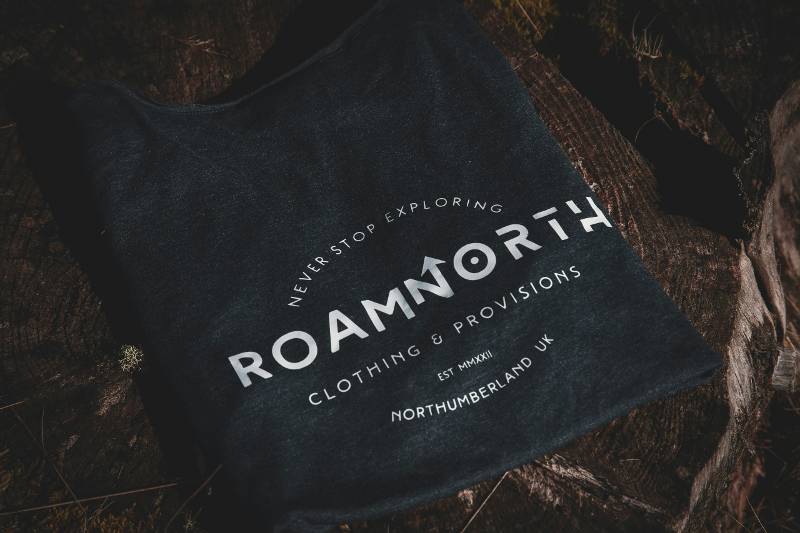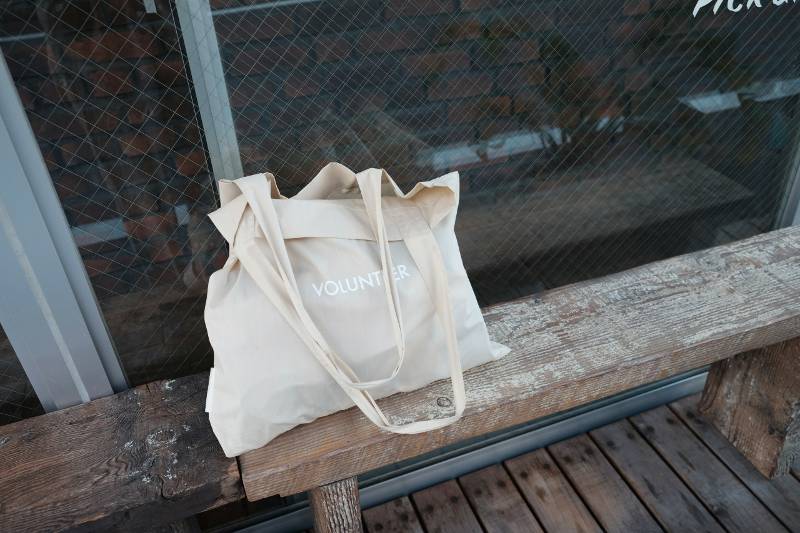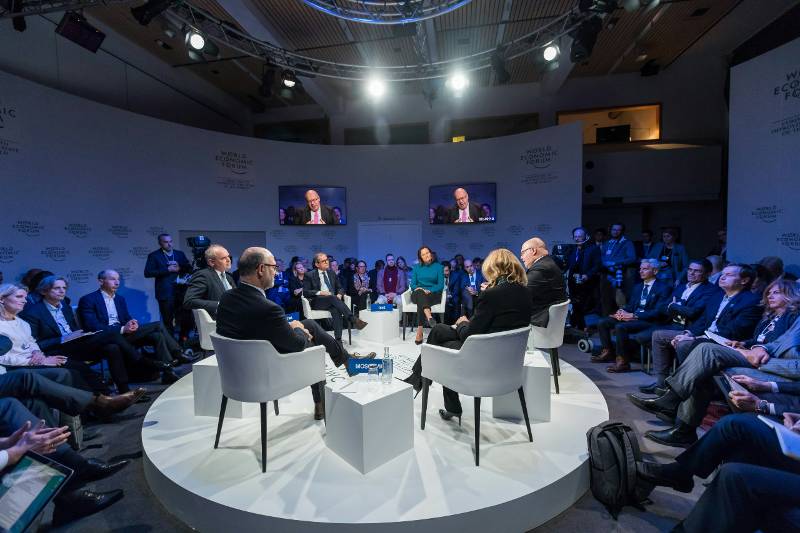5 Easy Branded Merchandise Ideas for an Event
In this article we cover 5 easy merchandise ideas for your next event, explain the benefits of using corporate merchandise and discuss the options when it comes to price versus quality of the promotion products and whether sustainable products are worth the investment.
Why use branded merchandise?
Company merchandise can be a great way to promote your event and create a lasting impression on attendees.
If you choose a product that people will use and reuse in the future, you will maximise your marketing return on spend, and build brand awareness long after the event has ended.
From t-shirts and hats to custom reusable water bottles and tote bags, there is a wide range of options to choose from. In this article, we'll explore some of the best corporate merchandise items for an event.
5 Company Merchandise Ideas for the event
In no particular order, here's 5 ideas to leave a lasting impression for your next event or trade show:

T-shirts
T-shirts are a classic and versatile choice for promotion products. They can be worn by attendees during the event and serve as a reminder of the experience long after it's over.
You can choose from a variety of styles, including short-sleeve, long-sleeve, and tank tops, and offer them in a range of sizes to accommodate different body types.
Reusable Coffee Mugs
Another great option for branded merchandise for your event is stainless steel coffee mugs. These mugs are durable, reusable, and can be used to hold hot or cold beverages.
They're perfect for attendees who want to stay hydrated or caffeinated throughout the day, and they can be used long after the trade show is over.

Hats
Hats are another popular choice for branded merchandise, and they can help attendees keep the sun out of their eyes during outdoor events. You can choose from baseball caps, beanies, and other styles, and have them embroidered or printed with your event's logo or branding.
Reusable water bottles
With concerns about plastic water bottles on the rise, many people are looking for ways to reduce their environmental impact.
Reusable water bottles are a great way to do this, and they can be branded with your event's logo or company message. Using brands like Just Bottle, you can achieve a high level of customisation to get the perfect product that's unique for your event.
You can even offer them as a gift to attendees when they arrive, encouraging them to stay hydrated throughout the day and ditch the plastic water bottles for good.
Even better is that attendees are highly likely to use their bottle over and over again after the event is finished, maximising your brand awareness and driving future engagement with your business.
Related: Considering Drinkware for your Branded Merchandise?

Tote Bags
Tote bags are a practical and eco-friendly choice for corporate merchandise. They can be used to carry all sorts of items, from groceries to books, and they're perfect for carrying around event materials and souvenirs.
You can choose from a variety of styles and materials, and have them printed or embroidered with your event's branding.
How to Choose Branded Merchandise
When choosing branded merchandise, prioritize quality and durability. Your merchandise represents your brand, so it's crucial to choose items that are well-made and will last. High-quality products not only leave a positive impression on recipients but also ensure that your brand is associated with excellence and reliability.
Investing in durable branded merchandise will also ensure that your brand remains visible and memorable for a longer period of time. For example, if you choose to distribute branded t-shirts, selecting ones made from high-quality fabric that won't fade or shrink after a few washes will ensure that your brand's logo and message remain intact and visible for a long time.
In addition, considering the durability of the products can also have a positive impact on the environment. By selecting merchandise that is made to last, you can reduce the amount of waste generated from disposable or low-quality items.
Quality v Price of Promotion Products
Now we've explored some ideas for the merchandise, the next thing to consider is the quality and the price of the corporate merch.
whether it's a conference, trade show, or when you shop holiday gift sets for staff, branded merchandise plays a crucial role in leaving a lasting impression on attendees.
The items you choose to represent your brand can significantly impact how your event is perceived. One of the key decisions you'll face when selecting branded merchandise is whether to prioritize quality or price.
While it may be tempting to just go for the cheapest option, investing in high-quality products has numerous benefits that far outweigh the initial expense, here's five reasons why:
1. Make a Lasting Impression
High-quality branded merchandise stands the test of time, ensuring that your message continues to resonate long after the event has ended.
Whether it's a durable tote bag, a stainless steel water bottle, or a premium notebook, recipients are more likely to hold onto and use items that are well-made and functional.
Each time they reach for your branded merchandise, they'll be reminded of their positive experience at your event, reinforcing brand loyalty and leaving a lasting impression.

2. Reflects Brand Image
Your choice of branded merchandise is a direct reflection of your brand image and values. Investing in high-quality products demonstrates a commitment to excellence and attention to detail, enhancing the perceived value of your brand.
On the other hand, cheaply made items can convey a sense of low quality and may even damage your brand reputation if they break or malfunction.
By choosing high-quality company merchandiser, you reinforce your brand's credibility and professionalism, making a positive impression on event attendees.
3. Increased Brand Exposure
Quality branded merchandise is more likely to be used and shared by recipients in the long run, leading to increased brand exposure and visibility.
Whether it's a t-shirt made with quality materials that's worn in public or a premium pen used in the office, high-quality items attract attention and spark conversations, effectively turning recipients into brand ambassadors.
In contrast, cheaply made products are often discarded or forgotten, resulting in missed opportunities to extend your brand's reach and impact.
4. Better ROI in the Long Run
While high-quality branded merchandise may have a higher upfront cost, it offers better value and return on investment (ROI) for your marketing campaign in the long run.
Quality products are more durable and functional, ensuring that your marketing dollars are well-spent. Cheap alternatives may seem cost-effective initially, but they often end up costing more in the form of replacements or damage control.
By investing in quality merchandise, you not only maximize the impact of your marketing efforts but also save money in the long term.

5. Positive Brand Association
The items you choose to represent your brand can influence how it is perceived by others. High-quality branded merchandise creates a positive association with your brand, signalling to recipients that you value their experience and satisfaction.
This can lead to increased brand trust and loyalty, as customers are more likely to engage with companies that prioritize quality and customer satisfaction. Conversely, cheaply made products can tarnish your brand image and erode customer trust, ultimately undermining your marketing efforts.
Is Sustainable Merchandise the Right Choice for Your Event?
In recent years, there has been a growing emphasis on sustainability in all aspects of business, including event planning and marketing.
As concerns about environmental impact and social responsibility continue to rise, many event organizers are reevaluating their approach to branded merchandise and opting for sustainable alternatives. But is a sustainable choice the right one for your event?
Let's explore the benefits and considerations of incorporating eco-friendly branded merchandise into your event or trade show planning strategy.
Benefits of Sustainable Branded Merchandise:
- Environmental Responsibility: Choosing sustainable branded merchandise demonstrates your commitment to reducing your environmental footprint and protecting natural resources. By opting for eco-friendly materials such as organic cotton, recycled plastic, or bamboo, you can minimize the impact of your event on the planet and contribute to conservation efforts.
- Positive Brand Image: Consumers today are increasingly conscious of the environmental and social practices of the companies they engage with. By prioritizing sustainability in your event planning, you can enhance your brand's image and reputation, attracting environmentally conscious consumers who align with your values.
- Long-Term Impact: Sustainable corporate merchandise is often designed to be durable and long-lasting, ensuring that your message continues to resonate with recipients for years to come. Unlike disposable or single-use items, eco-friendly products are more likely to be reused and retained, maximizing the longevity of your marketing efforts.
- Differentiation: In a crowded marketplace, sustainability can serve as a unique selling point that sets your event apart from the competition. By offering eco-friendly company merchandise, you can attract environmentally conscious attendees who are eager to support businesses that share their values.
Considerations When Choosing Sustainable Merchandise:
- Cost: While the prices of sustainable materials have become more competitive in recent years, they may still be higher than traditional options. Consider your budget and weigh the potential benefits of sustainability against the additional cost, although it's usually worth the little extra investment.
- Availability: Depending on your location and supplier network, sourcing sustainable branded merchandise may require additional time and effort. Plan ahead to ensure that you have access to a wide range of eco-friendly options that align with your event's theme and objectives.
- Audience Preferences: Take into account the preferences and values of your target audience when selecting sustainable merchandise. While many consumers prioritize sustainability, others may prioritize other factors such as price or functionality. Tailor your choices to resonate with the interests and priorities of your attendees.
The choice between quality and price is clear. While it may be tempting to cut costs by opting for cheaper alternatives, investing in high-quality products offers numerous benefits that ultimately outweigh the initial expense.
From leaving a lasting impression to reinforcing brand image and increasing brand exposure, quality merchandise is a worthwhile investment that pays dividends in the long run.
So, when planning your next event, remember to prioritize quality and choose branded merchandise that reflects the excellence of your brand.
To wrap things up, investing in high quality corporate merchandise is a great way to promote your event or marketing campaign and create a lasting impression on attendees.
From t-shirts and hats to reusable water bottles and tote bags, there is a wide range of options to choose from. Consider what type of merchandise will best suit your event and its attendees, and don't be afraid to get creative!
By choosing to shop holiday gift sets from businesses like Just Bottle, you'll not only be supporting your event, but you'll also be contributing to the collection and repurposing of ocean plastic.
This is a great way to show your commitment to sustainability and to make a positive impact on the environment. Whether you're hosting a conference, a festival, or any other type of event, Just Bottle's branded merchandise is a great choice that will be appreciated by attendees and the planet alike.






